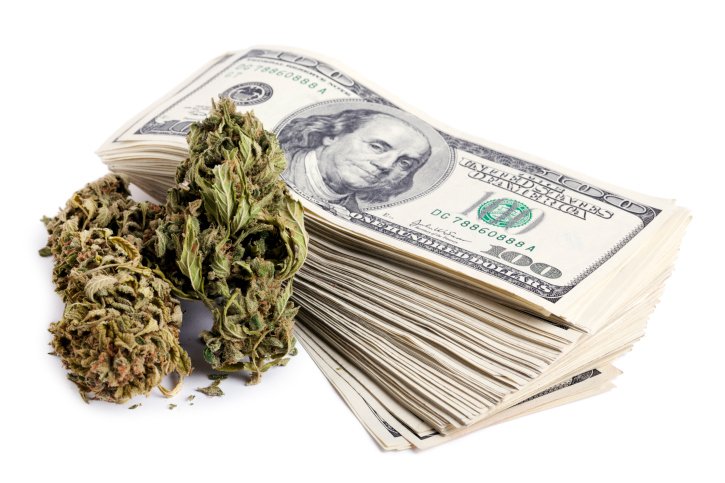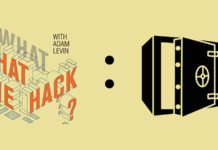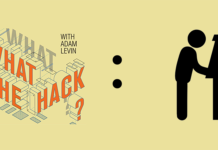 For many people like me, starting your own business is the embodiment of the American dream — you get to be your own boss, build something from the ground up and revel in its success. But for some budding entrepreneurs in several states their small businesses have become big financial nightmares — and not because of the economy. Rather, the federal government has forced them to go cash-only in an electronic economy despite the fact they sell a legal product (in some states): marijuana. According to the federal government, however, it’s still illegal.
For many people like me, starting your own business is the embodiment of the American dream — you get to be your own boss, build something from the ground up and revel in its success. But for some budding entrepreneurs in several states their small businesses have become big financial nightmares — and not because of the economy. Rather, the federal government has forced them to go cash-only in an electronic economy despite the fact they sell a legal product (in some states): marijuana. According to the federal government, however, it’s still illegal.
Even if you own a business selling marijuana in a state where it’s legal, even if it’s for medical use, you will have trouble getting a bank loan, accepting credit cards (or getting one for your business), claiming any business expenses on your taxes or even running your proceeds and expenses through many bank accounts. And even if the federal laws prohibiting banks from doing business with people who sell certain substances aren’t exclusively targeting marijuana sellers in states where it is legal, the feds certainly haven’t shied away from targeting legal dispensaries in the recent past based on those very laws.
It’s just another example of the federal government’s willingness to use whatever means at its disposal — in this case, its oversight of financial institutions — to compel its citizens to abide by a certain set of moral codes with which, increasingly, most of its citizens do not agree.
Fully 58 percent of Americans now believe that marijuana should be legal, according to an October Gallup poll. To be clear, they weren’t asked if “medical marijuana” should be legal, which has long enjoyed majority support, or if marijuana possession should be decriminalized, but whether the drug itself should just be legal. A solid 60 percent of Americans think that the federal government should stop enforcing federal laws against marijuana in states where it is legal, according to a Pew Research Center Poll that also showed 70 percent of Americans think the money we spend enforcing marijuana laws isn’t worth it.
Yet, in Colorado and Washington — where residents voted to make marijuana sales and possession wholly legal — proprietors who operate within the law are forced to contend with a situation driven by government policy that makes them less safe, their customers less safe and the state less likely to collect tax revenues on which it is counting — they are, and have to remain, cash-only. That means, for many small business owners, they pay their employees in cash, they pay their taxes in cash and they purchase most of their goods and supplies in cash, all of which leave them more vulnerable to violent crime than the average small business person.
Worse, as some in law enforcement have warned, it leaves the entire system vulnerable to bad actors, who see cash-only businesses as conduits to launder money or cheat the system.
Meanwhile, Attorney General Eric Holder said last week that the department is preparing “legal guidance” for prosecutors and law enforcement in an effort to clarify how these businesses should be able to access the banking system. This doesn’t mean that the guidance will necessarily mean an “all’s clear” for legal dispensaries. The federal government issued a similar guidance in 2009 that was then ignored by law enforcement when raiding the very shops the guidance was expected to protect. The guidance, Politico noted when it was issued, “wouldn’t be enforceable in court and would amount to less than the kind of clear safe harbor many banks say they would want before accepting money from pot businesses.”
It’s time to stop this nonsense. The voters of Colorado and Washington believe marijuana should be legal, and medical marijuana is legal in another 18 states and the District of Columbia. Even my home state of New York is launching a medical marijuana trial program. The last three presidents have used it, most of our Congressional leaders have tried it and we’re increasingly unlikely to have another president who can even claim that he (or she) didn’t inhale.
So there’s no reason for the small business owners to bear the brunt of the federal government’s desire to enforce a marijuana prohibition law its own people don’t support and many states have thrown out — and there’s even less reason to make the men and women employed by the private banks and credit card companies the de facto enforcers of that law. If it’s going to be legal, small business owners who sell it should have the same access to the financial system (and the protections that system provides them) as any other small business owner in America.
The only way to make the system safe, secure, easy to monitor and taxable is to make it like every other business in the eyes of the (federal) law and the banks that can help it grow.










